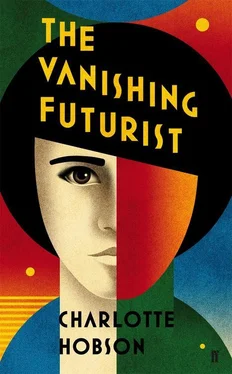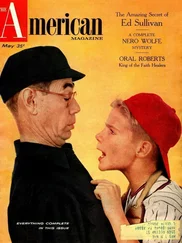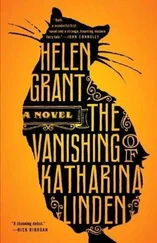And yet Nikita had loved her, despite himself – despite our ridiculous insistence that love was no longer relevant. What fools we had been. At least he and Sonya had found a few moments of happiness together – the night they walked together, the days and nights they spent in his workshop, while Pasha had watched me twisting and torturing myself with Revolutionary ideals.
And now, what of Pasha and me? Last night we had comforted each other. I had felt something astonishing, a sense of basking in another’s warmth that I had no memory of ever feeling before. Yet what did it really mean? Slavkin had carved himself into my heart so powerfully. The habit of placing him first in all my thoughts was deeply engrained. But I couldn’t tell whether it was love – or some kind of bitter longing for suffering, a poisonous egotism masquerading as devotion.
* * *
I tried to eat after writing this last chapter, but I couldn’t keep it down; every mouthful seems to smell like blondinka . Even a whole slice of bread is too much for me now. I’ve been welcoming in my hunger for so long that now I seem to have forgotten how to swallow. I’m a little dizzy when I stand, but if I sit and keep writing, I feel fine. Sophy rang, but I couldn’t speak to her. She’ll read this soon enough, and then… then we’ll see what she wants. Whether she’s willing to talk to me then.
* * *
At midday we finally trotted up to the Gate of the Saviour at Kolomenskoye. Pasha and I clambered out of the cart, aching and chilled, and blinked in astonishment. Since the morning the sky had cleared. The Church of the Ascension stood out, white as a swan against a cobalt-blue sky, on a high bank of the Moscow river. Behind it the snowy Russian countryside glittered and perfectly still columns of feathery smoke rose here and there.
The old man seemed agitated, and took our payment without demur. ‘Got to get my girl home,’ he muttered. ‘No good waiting around here.’ And he whipped up the old donkey and disappeared.
Neither of us particularly looked the part, but Pelyagin’s photograph was over-exposed and printed on poor paper – all that could really be made out was a man with a moustache and spectacles. Pasha put on Pelyagin’s glasses and grinned at me.
‘You see, the moustache turns out to be necessary after all.’
I laughed shakily.
‘ Nu shto . Are you ready?’
I took a breath of the sharp, clean air, leant forward and kissed him. ‘Ready.’
We made our way to the main door of the church.
‘Open up, comrades!’ called Pasha.
A long pause. In the distance we could hear footsteps.
‘Open up!’
A young man, dishevelled and pale, looked out. ‘Forgive me, comrades, I was just… Oh,’ he looked at us in surprise, ‘I thought you were…’
‘You’ve kept us waiting,’ snapped Pasha, stepping inside. ‘Commissar Emil Pelyagin, from the Moscow Special Commission. Where is your commander?’
‘Oh, yes, well – he’s out, Comrade Commissar, he’s on a mission. They went during the night and they’re not back yet—’
‘Didn’t you get my telegram?’
‘T-telegram?’
‘I sent a telegram to say I would be coming this morning to inspect your set-up. I have heard poor reports of this outfit.’
‘Yes, no, comrade… They won’t be long. Perhaps the Comrade Commissar would like to drink a cup of tea?’ The poor fellow was shaking with fear.
‘Drink a cup of tea!’ bellowed Pasha. ‘I don’t have time to sit about and drink tea like a debutante! You’d better show us around. Come on.’
‘Yes, certainly.’ He led us into the aisle of the church, which was being used as a barracks. Shafts of red, blue and golden light, spinning with dust, fell on filthy piles of rags, broken bottles and ground-out papirosy . A girl was sleeping in a corner, bare feet sticking out from a blanket. ‘We use this as the mess room—’
‘Express yourself properly!’ barked Pasha. ‘Who’s “we”?’
‘First patrol, fifth division, South-East Moscow Region, Comrade Commissar!’ he shot back sharply, drawing himself up.
‘That’s better. You live like pigs, comrade. We need discipline to win this war.’
This was not what we were expecting. It was an ordinary Red Army post. I noticed the door to the vestry and moved towards it.
‘What’s through that door?’
‘Right away, Comrade Commissar… we have an office here… and a storeroom.’ He showed us through the empty rooms. ‘We keep ammunition in here—’
‘We were informed that there was a laboratory on the premises,’ said Pasha.
‘A laboratory? Well—’
A thin, high sound echoed suddenly through the walls. Pasha turned silently to the young man, his eyebrows raised.
‘Yes, sir, comrade, I was just going to take you,’ he stammered. ‘Through here, in the back courtyard – I have no authority, but of course you do—’
He unlocked a small door at the back of the vestry and led us out into the courtyard and a huddle of wooden sheds. We heard it again, more animal than mechanical. My stomach turned over. We crossed the snowy courtyard while the young soldier said over his shoulder. ‘They can’t control them, that’s the problem, Comrade Commissar.’ He pushed open the door and yelled, ‘Serafima! The Special Commission are here!’ He turned to us again and said, bizarrely I thought, ‘They should really just settle their accounts, there’s no place for them in our Revolution.’
He fell quiet when a tall figure appeared, dressed in black. Her face gave me a jolt – the ancient shrunken look of a woman decades older than her upright posture suggested. After a moment she nodded slightly. ‘Yes, comrades? How may I assist you?’
I had the uneasy feeling that she had seen straight through us.
‘Lieutenant Emil Pelyagin, Special Commission. I believe you have a scientific establishment here,’ Pasha shot back at her.
She studied him for a moment. ‘This is a closed facility. I am required to inspect all documents before admitting visitors.’
‘Good, comrade. I am glad to see you take security measures seriously.’ Pasha handed her Pelyagin’s documents. ‘What are you researching here? Are you a physicist?’
She looked at him a little strangely. ‘A physicist? No.’
‘Introduce yourself, comrade. Name and rank.’
‘My name is Sister Serafima. As to rank, I have none.’
‘Sister?’ repeated Pasha.
‘Nuns, aren’t they,’ interrupted the young soldier. ‘They moved in here from some convent or other.’
‘But what on earth are you doing running a research laboratory?’
Sister Serafima handed the papers back. ‘Follow me.’
On the door of the first shed was a scribbled notice: ‘ Laboratoria 36’. My heart was pounding. Sister Serafima pushed open the door and we were hit by the stench. It was dark inside, and for a moment I read the smell as something chemical.
I stepped inside the shed and saw – people. Half-naked, gaunt bodies jostled together, and eyes staring out at us, huge blank dirty eyes. Bile rose in my mouth. Some were sitting or lying on the earth floor – ageless and sexless, barely animate. Some shrank back at the sight of us. A few pressed forward, murmuring.
‘I don’t understand,’ Pasha stammered.
‘They call it a laboratory,’ Sister Serafima said impassively. ‘Perhaps in the future they plan some sort of research.’ She paused. ‘For now, these people and those in the two rooms beyond are my charges, a total of eighty-five souls. They are lunatics.’
A murmuring started up. An old man stumbled towards us; his face was horribly swollen and bruised. ‘ Barishnya ,’ he said, and giggled. ‘I haven’t seen you before, miss.’ He reached out and took my hand, and everything in me wanted to shrink away from him. With an effort I controlled myself, but Pasha pushed him away, snapping, ‘Don’t touch her!’
Читать дальше





![Майкл Муркок - Спящая волшебница / The Sleeping Sorceress [= Участь Белого Волка, Рыцарь Хаоса, The Vanishing Tower]](/books/327544/majkl-murkok-spyachaya-volshebnica-the-sleeping-sorc-thumb.webp)






